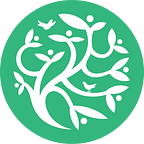Iron-willed
How the UK’s only haemochromatosis charity responded to the pandemic
In this guest blog Neil McClements, CEO of Haemochromatosis UK, talks about how the charity helped people living with haemochromatosis, a genetic condition, to cope during lockdown. The charity was able to respond despite COVID-19 with the help of Independent Age’s grants funding programme.
“Thought to be the UK’s most common genetic disorder, haemochromatosis is estimated to affect over 380,000 in the UK, yet there’s generally little awareness of it among the general population. Often, the first time people hear about the condition is when they get diagnosed.
“Our charity was founded in 1990 to support people affected by haemochromatosis. The genetically inherited clinical condition causes individuals’ bodies to improperly regulate iron, and can lead to serious health complications in later life if not treated.
“Over the years we have done this in a variety of ways, from creating award-winning training courses for clinicians, to providing day-to-day support to people affected by the condition and their friends, families, even employers, through a dedicated, volunteer-led support helpline.
“In normal times, our helpline is staffed on a rota-basis by several dozen volunteers with direct, lived experience of genetic haemochromatosis. But last year all our usual operations were massively impacted by coronavirus.
“When the pandemic hit in the first half of last year, as we all know, the NHS concentrated all its efforts, rightly, on providing care for those affected by Covid-19. Many other treatments had to be paused, which included the regular blood donations that people with haemochromatosis undergo to keep iron levels in check.
“As a result of this, our helpline saw a five-fold increase in calls, almost overnight, remaining at that level for months. Most people who need our help are aged over 55 and many are in social isolation or are acutely distressed about their medical condition. To meet the added demand we desperately needed extra help.
“This is why the Independent Age grant from was so crucial to us. The funding from Independent Age allowed us to meet not just the sheer quantity of calls, but also to improve the quality of the support that we were able to provide to those who needed it. We brought on a part-time volunteer manager, who has created a “correspondence course” delivered via email to recruit and train helpline volunteers through a series of bite-size training modules.
“We have also found that we have had more people coming to us in seriously grave personal situations. The grant from Independent Age allowed us to partner with our local branch of the Samaritans to provide training for our helpliners on how to deal with callers in acute emotional distress.
“With Independent Age’s vital £10,000 grant we have been able to establish a sustainable model for how we operate our helpline service. It has provided momentum that is seeing the helpline grow in scope and quality even after the funds have been spent. Well into this year, we are still changing the world on a bigger scale as a result of the money we received last year.
“We know that the investment made by Independent Age will enable us to build upon our work and support a further nine hundred people in later life living with haemochromatosis in 2021 via our helplines. We would have struggled to support so many people without Independent Age’s help!
“But it doesn’t stop there. We want to be able to offer a high level of support to anyone affected or concerned about haemochromatosis who comes to us. Over the coming months, we have big plans to expand our services and with the help of dedicated volunteers and donors, we know we can make a real difference for people with this condition.”
Take a read of the stories we have gathered from, Entelechy Arts and Time to Talk Befriending, two other organisations we funded. Find more on our Grants Fund.
